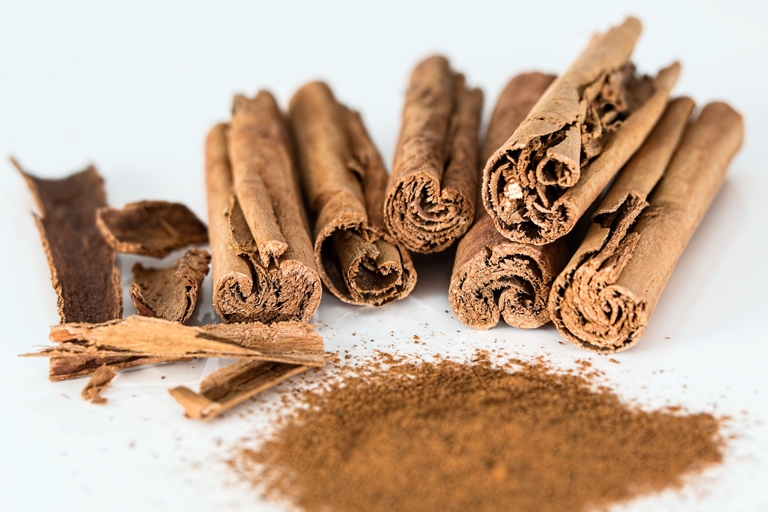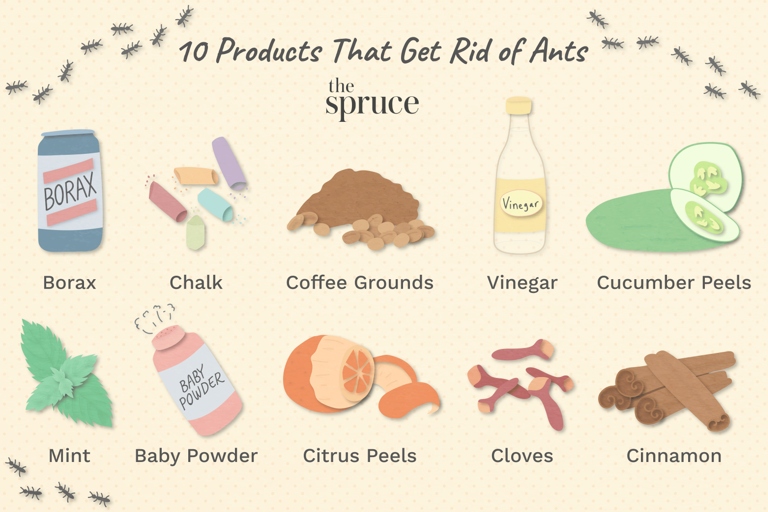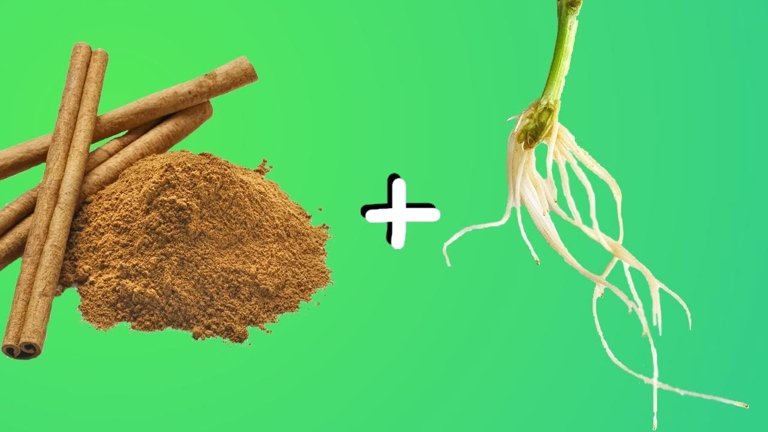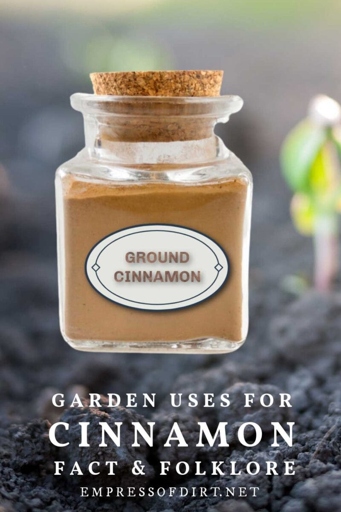Cinnamon is a spice that many people enjoy for its flavor and aroma. However, some people worry that cinnamon can harm plants. There is no need to worry, as cinnamon is safe to use around plants. There are many ways to use cinnamon to benefit plants, including:
-Adding cinnamon to the soil to help improve drainage
-Using cinnamon to make a natural insecticide
-Sprinkling cinnamon on plants to deter animals from eating them
Cinnamon is a versatile and helpful spice that can be used to improve the health of plants. There is no need to worry about harming plants when using cinnamon.
Cinnamon Types
It is the type of cinnamon most commonly found in the United States. There are two main types of cinnamon: Ceylon and cassia. Ceylon cinnamon is native to Sri Lanka and is the more expensive of the two types. Cassia cinnamon is native to China and Indonesia and has a stronger, more pungent flavor. It has a sweeter, more delicate flavor and is often used in baking. Cinnamon is a spice that has been used for centuries in cooking and baking.

When using cinnamon on plants, it is best to mix it with other ingredients such as compost or manure to dilute its effects. While cinnamon is safe to use around plants, it can be harmful if used in excess. Cinnamon can cause root rot and leaf scorch, so it is important to use it sparingly.
Cinnamon’s Beneficial Properties for Plants
It can help to improve the plant’s root system, making it more efficient at absorbing water and nutrients. Cinnamon can also help to control fungal growth on plants, making them less susceptible to diseases. Finally, cinnamon can help to repel pests, keeping your plants healthy and looking their best. Cinnamon has a number of beneficial properties for plants.
How to Use Cinnamon in Garden And Potted Plants
It’s also a popular choice for gardeners and potted plant owners who are looking for a natural way to protect their plants from pests. Cinnamon has a long history of use in both cooking and medicine.
But can cinnamon harm plants?
In fact, it can be beneficial for them. The short answer is no. Cinnamon is safe to use around garden and potted plants.
Here are eight safe ways to use cinnamon in your garden and potted plants:
Sprinkle cinnamon on the soil around your plants to deter pests. 1.
Mix cinnamon with water and spray it on your plants to repel aphids, spider mites, and other pests. 2.
Add a few cinnamon sticks to your potted plants to help keep the soil moist. 3.
This will give them a boost of nutrients. 4. Make a cinnamon tea by boiling water and cinnamon sticks and using it to water your plants.
Just add a few drops to water and spray it on your plants. Use cinnamon oil to make a natural insecticide. 5.
Mix cinnamon and sugar together and sprinkle it around the base of your plants to attract beneficial insects like ladybugs. 6.

Add cinnamon to your compost pile to help speed up the decomposition process. 7.
Sprinkle cinnamon on your plants before a frost to help protect them from the cold. 8.
As you can see, there are many ways to safely use cinnamon in your garden and potted plants. So don’t be afraid to experiment and see what works best for you.
Combating Ants With Cinnamon
A natural insecticide, cinnamon can be used in a variety of ways to keep ants at bay. When it comes to ants, cinnamon can be a powerful ally in the battle to keep them out of your home.

One of the most effective methods is to create a cinnamon barrier. Simply sprinkle a line of cinnamon around the perimeter of your home, or any area where you don’t want ants. The strong smell will deter them from crossing the line.
Mix equal parts cinnamon and sugar, and place the mixture where you’ve seen ants. The sugar will attract them, and the cinnamon will kill them. If you already have an ant problem, you can use cinnamon to help get rid of them.
So next time you see them marching into your home, reach for the cinnamon instead of the toxic chemicals. Cinnamon is a safe and natural way to combat ants.
Cinnamon Powder For A Children’s Sandbox
Just sprinkle a layer of powder on the ground around the sandbox and the weeds will not be able to take root. Cinnamon powder is a great way to keep ants and other insects out of your children’s sandbox. Simply sprinkle a layer of cinnamon powder on top of the sand. You can also use cinnamon powder to keep weeds from growing in the sandbox. The powder will keep the bugs away and also add a nice smell to the sandbox.
Cinnamon Has an Adverse Reaction In Cats
Cinnamon has a long history of being used as a spice and as a medicinal herb. However, cinnamon can be harmful to cats. It is a popular ingredient in many cuisines, and is used in baking and as a flavoring for many foods and drinks.

Cats are attracted to the smell of cinnamon, so it is important to keep this spice out of reach of your feline friend. In severe cases, it can lead to liver damage and death. Cinnamon can cause an adverse reaction in cats, resulting in vomiting, diarrhea, and abdominal pain.
Using Cinnamon as a Plant Rooting Hormone
Cinnamon contains a compound called cinnamaldehyde, which is thought to stimulate plant growth. Cinnamon is a popular spice with a long history of culinary and medicinal use. It can also be used as a plant rooting hormone.
Then plant the cutting in moist soil. The cinnamon will help the plant to root more quickly and effectively. To use cinnamon as a plant rooting hormone, simply dip the cut end of a plant cutting into a mixture of cinnamon and water.

Cinnamon is generally safe for plants, but it can be harmful if used in too high of a concentration. Be sure to dilute the cinnamon before using it on your plants.
Cinnamon Is Used To Treat Plant Injuries
Cinnamon can also be used to repel insects. Cinnamon can be used to treat plant injuries. It is also known for its medicinal properties. Cinnamon is a spice that has been used for centuries in cooking and baking. It is a natural antiseptic and can be used to treat wounds, burns, and rashes.
Cinnamon Against Fungal Diseases
Cinnamon is a popular spice with many health benefits. It has been used to treat a variety of ailments, including fungal diseases. In a study, cinnamon was found to be effective against a type of fungus that causes athlete’s foot. Cinnamon contains a compound called cinnamaldehyde, which has antifungal properties.

When using cinnamon essential oil, be sure to dilute it with a carrier oil such as jojoba oil. You can also add a few drops of cinnamon oil to your bathwater to help relieve the symptoms of fungal infections. Cinnamon can be used topically or taken internally to treat fungal infections.
Cinnamon In Plant Pots To Prevent Mold Growth
This will help to keep them healthy and free of mold. Simply sprinkle some cinnamon on the soil in your plant pots and it will help to keep mold at bay. Cinnamon is a great way to prevent mold growth on plants. You can also add a few drops of cinnamon oil to a spray bottle of water and use it to mist your plants.
Cinnamon Help Reduce Repotting Shock
The cinnamon will also help to keep the roots moist and reduce the chance of the plant drying out. When you add a teaspoon of cinnamon to the potting mix, it will help to reduce the stress that the plant experiences when it is transplanted. Cinnamon is a great way to help reduce repotting shock in plants.
Frequently Asked Questions
1. What is cinnamon?
Cinnamon is a spice made from the inner bark of the Cinnamomum tree.
2. What are the benefits of using cinnamon on plants?
Cinnamon has many benefits for plants, including acting as a natural fungicide, repelling pests, and improving plant health.
3. How do I use cinnamon on plants?
There are many ways to use cinnamon on plants, including sprinkling it on the soil, mixing it with water to make a spray, or adding it to compost.
4. Will cinnamon harm my plants?
Cinnamon is safe to use on most plants, but it can be harmful to some species. It is always best to test a small area of the plant before using cinnamon on the entire plant.
5. How often should I use cinnamon on my plants?
Cinnamon can be used as often as needed, but it is typically only necessary to use it once or twice per month.
Final thoughts
Cinnamon can be used as a natural insecticide, fungicide, and herbicide. It is safe to use around children and pets, and is biodegradable. When used as directed, cinnamon can be an effective and safe way to control pests and diseases in your garden.
